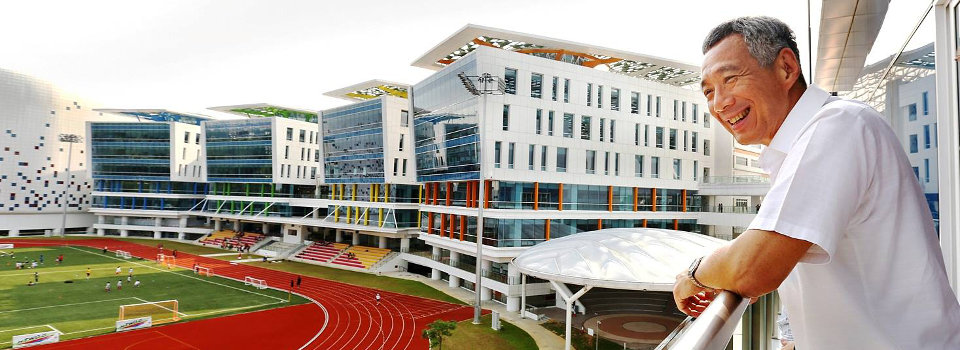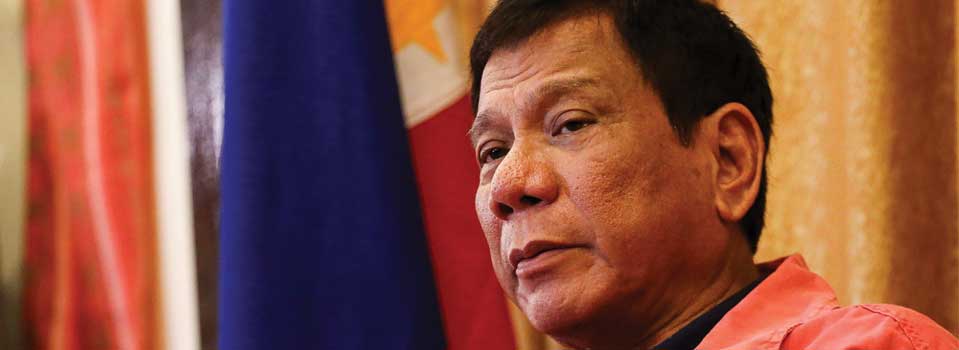Prime Minister Lee’s National Day Rally speech last Sunday marked a high point in his political career
IT WOULD not be an exaggeration to say that Prime Minister Lee Hsien Loong’s National Day Rally (NDR) speech last Sunday marked a high point in his political career. The communicator in him literally took centre stage, forcefully but unobtrusively. His speech displayed an almost seamless combination of the three characteristics of good political communication: clarity of the message, sureness of style, and genuine empathy with the audience.
The message was clear: the government would take care of Singaporeans. This clarity was needed sorely after years of market forces marching freely through lives and moving into the centre of political discourse. Some Singaporeans believed that the People’s Action Party (PAP), which had begun as a socialist democratic party well on the left of the political spectrum, was losing its ideological way.
On Sunday, Mr Lee reset the party’s ideological bearings somewhat. Without quite reversing the privatisation of Singapore life that has been underway in recent decades, he brought the state reassuringly back into view. The substance of his remarks was that, in public housing and healthcare costs, particularly for the aged, an interventionist state would seek to ensure equity.
Watching the speech on television and comparing it with others that I have seen, what struck me was the unique nature of his performance. NDR speeches of yore, particularly Lee Kuan Yew’s, resembled a chairman’s presentation to shareholders on the state of Singapore Inc. Facts, figures, charts and graphs came with starkly convincing, often austere, bottom lines.
By contrast, Sunday’s gathering resembled a townhall meeting of stakeholders. What mattered was not the number of shares a citizen owned metaphorically in Singapore Inc – old and sick people possess hardly any – but what was at stake in a citizen’s relationship with the government. What was at stake was the future of the country itself, which was far more important than the fate of its richest or most talented citizens.
The patrician, elitist and authoritarian ethos of the Lee Kuan Yew years – necessary, perhaps, in those do-or-die-times – were tempered at its edges but not at the centre even in Goh Chok Tong’s vision of a kinder and gentler Singapore. On Sunday, the prime minister redrew ideological parameters to make space for a more egalitarian compact between the individual, society and the state.
This change of emphasis answers to the needs of a maturing Singapore polity, in which the old survivalist narrative – the constant reminder that the world does not owe Singapore a living – has ceased to capture people’s imagination. It is not that the threat of economic irrelevance is irrelevant – it is real – but that citizens want to know what can be done for them, particularly the most vulnerable in society, in spite of Singapore’s external exigencies.
Recognising this change in the public mood, the PM refocused the PAP’s approach to nation-building, moving on from where his predecessors had left off. Of course, this change of emphasis had begun much earlier than at this year’s NDR, but it was in full view at the rally.
Style and audience
What conveyed this message effortlessly was PM Lee’s style. He had entered politics very much as a general moulded in the stern image of his father. His own taciturn features upheld the visibility of that political lineage. But political leadership is unlike military leadership. In the army, authority and precedence are established by unquestioned rank; in politics, authority is earned by the abolition of rank.
The prime minister is the first among equals, not only in the Cabinet but also in society at large. He is supported (not obeyed) because he is one of us; it is his office that gives him the right to act for all of us. The more he resembles us, the more credible he is.
Former British prime minister Tony Blair, who like Mr Lee is an Oxbridge alumnus, honed this art to perfection. In his appeal to national values, his idiomatic pitch, and his manners and mannerisms, Mr Blair focused on what connected him to the British electorate, not what set him apart from it.
Mr Lee’s confident and easygoing style on Sunday; his acknowledgement of popular sentiment, by asking spontaneously for a show of hands on several issues; and the friendly demeanour in which he delivered his speech created a stylised image of him as a leader on whom authority rests heavily but power sits easily. This was the prime minister as one of us.
This style kept in mind his audience, not only those at the venue, but also those outside it. Younger Singaporeans, in particular, value frank talk. Some of them might be a little spoilt, but most understand that there are costs and benefits to every policy. What they cannot bear is being talked down to, to be told that the world is so frightening that docility in a stratified system is the only way to exist.
They wish to be addressed as equals. They acknowledge their responsibilities, but argue that these come with rights. The right to live in a fair and just society, where the state and civil society work to redress market-induced imbalances, is an important one for many young Singaporeans.
It is this constituency that is likely to find both the substance and the style of Mr Lee’s address especially appealing. He has moved the national dialogue well past the fixation with the so-called new normal apparent in the PAP’s recent electoral reverses. Young Singaporeans, who do not remember much of the old normal in order to compare it with the new, want the political leadership to concentrate on the future.
This is what the prime minister did on Sunday by drawing on the main public sentiments, grievances and demands thrown up by the year-long Our Singapore Conversation (OSC) process. His speech paid the ultimate tribute to that national conversation. Having heard patiently what Singaporeans wanted, he told them honestly what could and would be changed.
This is the politics of integrity, not of empty promises and showmanship. Sunday’s speech has set new standards for every NDR address to come.


